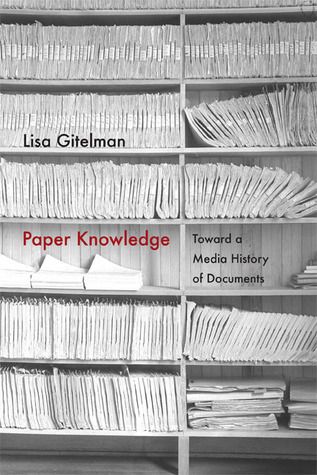What do you think?
Rate this book


224 pages, Paperback
First published January 1, 2014
"The hand-shaped cursor abets what Walter Benjamin calls the 'dictatorial perpendicular' of modern reading. [...] as if the dictatorial perpendicular could every fully refute 'the frightening anesthetic power of company [academic] papers,' as Primo Levi once put it." — Gitelman (130)
"The nominal blanks of fictions like Poe’s, seem like a careful attempt to hold open a tale’s potential field of address. Such openness may have helped get Poe’s tales and poems published, and republished, effectively providing Poe with a "mobile form of capital.” Seen in this light, the typography of [Poe's Blank] works something like the typography of a job-printed checkbook, since both facilitate monetary exchange. One difference is that Poe’s typography works in part because his blanks can’t be definitively filled in, while a checkbook works presumably because its blanks can be." (29)
William Sherman notes that the small pointing hand, or “manicule,” is “a visually striking version of the most common marginal notation of all— nota or nota bene." (129)